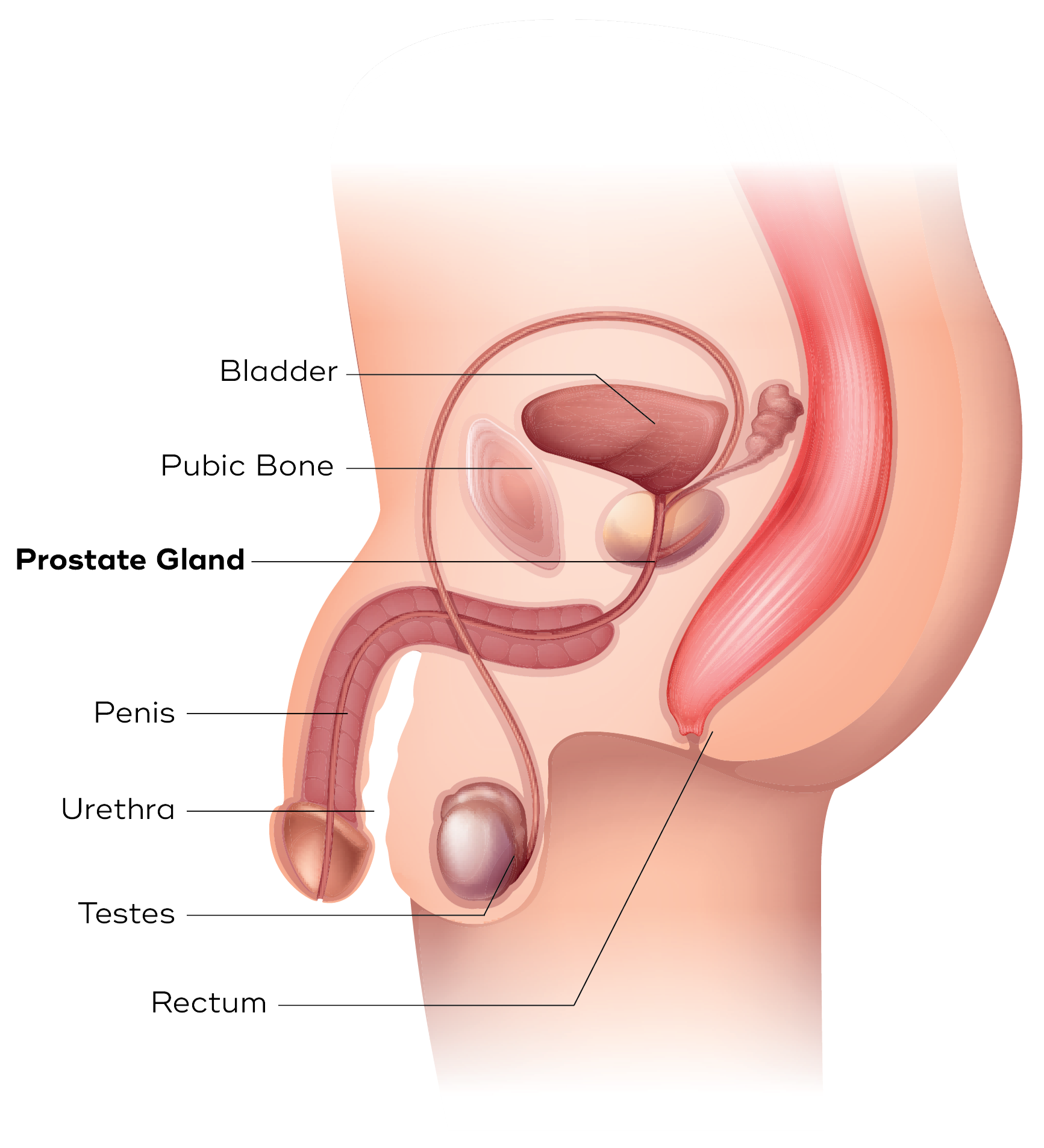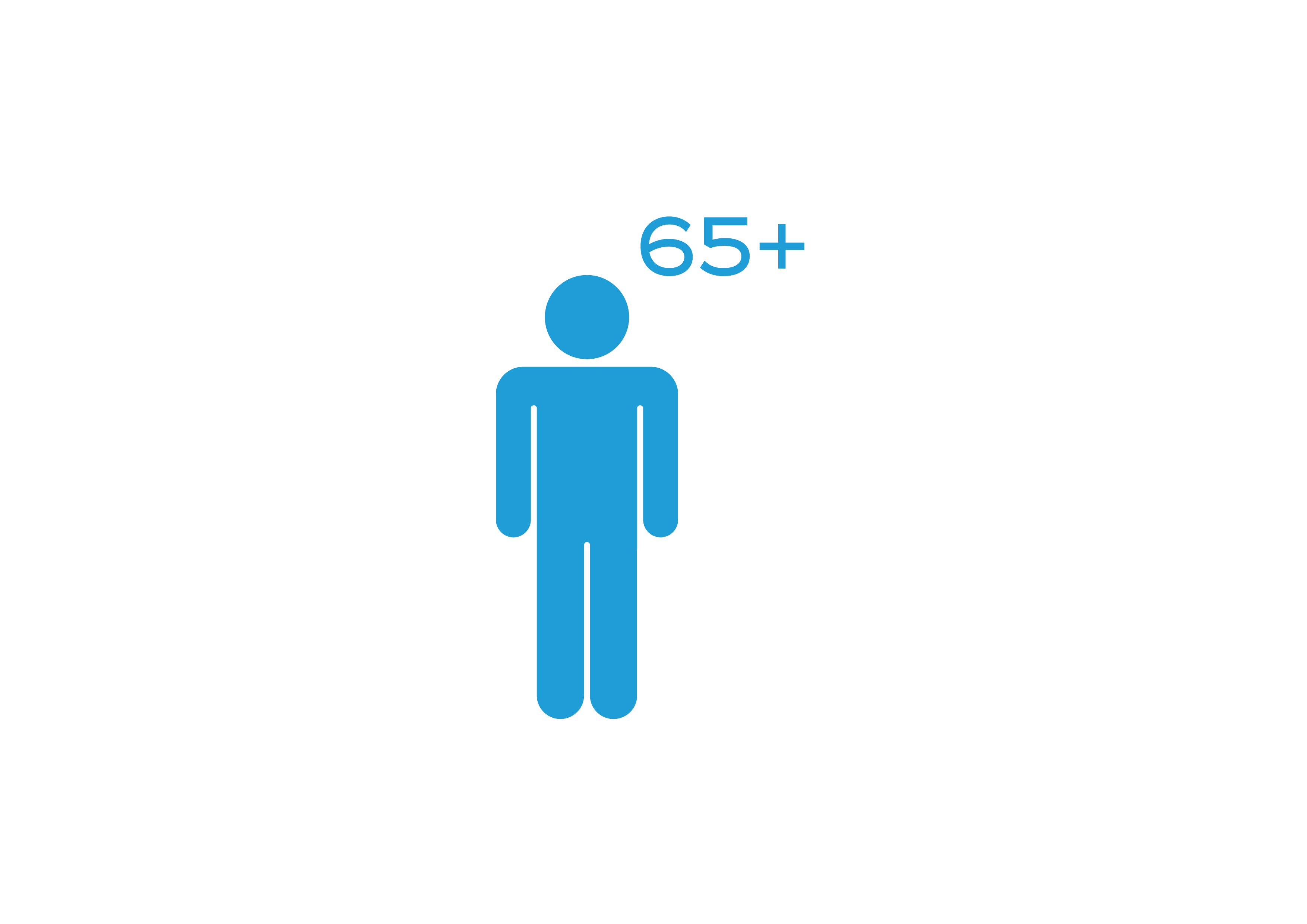THIS PAGE IS INTENDED FOR UK PATIENTS WHO HAVE BEEN PRESCRIBED STALADEX® (leuprorelin acetate)
Adverse event reporting can be found at the bottom of the page.
About Prostate Cancer
What is the prostate?
The prostate is a small gland in the male reproductive system, which sits underneath the bladder and above the penis.1 The gland is usually the size of a walnut but gets bigger as men get older.1,2
The prostates’ main function is to help produce semen; it produces a thick white fluid that creates semen when mixed with the sperm that’s produced by the testicles.1
The following people have a prostate3,4:
- Men
- Transgender women
- Non-binary people who were assigned male at birth
- Some intersex people
To note: The information on this webpage is based primarily on sources that focus on guidance and evidence related to prostate cancer in men. However, we recognise that prostate cancer does not only affect males and as a transgender woman, male-assigned non-binary, or intersex person, your experience with the condition may be unique. For more tailored advice, please visit Prostate Cancer UK’s page on transgender women and prostate cancer.
What is prostate cancer?
Prostate cancer is cancer of the prostate gland, and it develops when cells in the prostate start growing in an uncontrolled way.2,4 These cells can grow into surrounding tissues or organs and may spread to other areas of the body. 2
For many men, prostate cancer grows very slowly. It may never cause any problems or affect their life span (in these cases, treatment may not be necessary).4 However, some types of prostate cancer can grow quickly and are more likely to spread, which can lead to further symptoms. In such cases, treatment is needed to help stop the cancer from spreading and to manage its impact on your health.4
Symptoms
Prostate cancer typically does not produce symptoms until it grows large enough to press against the urethra, the tube that carries urine from the bladder out through the penis.3
The NHS highlight the key symptoms of prostate cancer as5:
- Needing to pee more frequently, especially at night
- Urgency to go the toilet
- Difficulty in starting to pee (hesitancy)
- Straining or taking a long time while peeing
- Weak urine flow
- Feeling that your bladder isn’t fully empty after urinating.
- The presence of blood in urine and/or semen
It is important to note that these symptoms are not always reflective of prostate cancer: many men’s prostates enlarge as they get older because of a non-cancerous condition called benign prostate enlargement.5
It is important to visit your GP if you are facing any or a combination of these symptoms.
Diagnosis
Most people will start by seeing their General Practitioner (GP). They can run tests to help them decide whether you might need a referral to a specialist. There isn’t one single, definitive test for prostate cancer. Your GP will discuss the advantages and disadvantages of the various tests with you to help to ease any anxiety.6
The tests your GP might arrange include 7,8:
- an examination of your prostate gland (rectal examination)
- a prostate specific antigen (PSA) blood test
Your GP will assess your risk of prostate cancer by considering several factors, such as the amount of prostate specific antigen (PSA) in your blood, the results of your prostate examination, your age, family history, and ethnicity. If a risk is identified, you should be referred to a hospital to discuss options for further testing.6
Prostate cancer is more common over the age of 65 7
1 in 8 men will be diagnosed with prostate cancer in their lifetime 4
There has been a 53% increase in prostate cancer incidence rates within the UK male population since the early 1990s 9
References
- https://www.nhs.uk/conditions/prostate-cancer/ (Accessed March 2025)
- https://www.cancerresearchuk.org/about-cancer/prostate-cancer/about (Accessed March 2025)
- https://www.nhs.uk/conditions/prostate-problems/#:~:text=The%20prostate%20is%20a%20small,of%20the%20body%20(urethra) (Accessed March 2025)
- https://prostatecanceruk.org/prostate-information-and-support/risk-and-symptoms/about-prostate-cancer (Accessed March 2025)
- https://www.nhs.uk/conditions/prostate-cancer/symptoms/ (Accessed March 2025)
- https://www.nhs.uk/conditions/prostate-cancer/diagnosis/ (Accessed March 2025)
- https://www.macmillan.org.uk/cancer-information-and-support/prostate-cancer (Accessed March 2025)
- https://www.cancerresearchuk.org/about-cancer/prostate-cancer/getting-diagnosed/tests-for-prostate-cancer (Accessed March 2025)
- https://www.cancerresearchuk.org/health-professional/cancer-statistics/statistics-by-cancer-type/prostate-cancer/incidence (Accessed March 2025)
STA1010606N1_MAR2025



